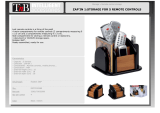INTRODUCTION
12
Owner information is available here
The owner's manual is available in the car's cen-
tre display, as a mobile app and on Volvo's sup-
port page. There is a Quick Guide and a supple-
ment to the owner's manual available in the glo-
vebox, with specifications and fuse information,
amongst other things. A complete printed
owner's manual can be ordered.
Digital owner's information
In the car's centre display
A digital
1
version of the owner's manual is availa-
ble in the car's centre display. Available here are
e.g. options for visual navigation with exterior and
interior images of the car. The information is
searchable and is also divided into different cate-
gories. Read more in "Digital owner's manual in
the car".
As a mobile app
A digital owner's manual is also available as a
mobile app and can be downloaded from the e.g.
App Store. The app contains video as well as
options for visual navigation with exterior and
interior images of the car. It is easy to navigate
between the different sections in the owner's
manual and the content is searchable. Read
more in "Owner's Manual in mobile devices".
On the Web
The owner's manual can also be accessed from
Volvo's support page, support.volvocars.com, both
online and in PDF format. On the support page
there are also videos and step-by-step instruc-
tions for e.g. Internet-connected services and
functions. The page is available for most markets.
Read more in "Support and more information
about the car on the Internet".
Printed owner's information
Printed supplement
The printed owner's manual in the car is a sup-
plement to the digital owner's manual
1
and con-
tains important text, information about fuses, as
well as certain specifications. It also contains
instructions which may come in handy when it is
not possible to read the information in the centre
display for practical reasons. See how the
owner's manual is structured in "Reading the
owner's manual".
Quick Guide
There is also a Quick Guide available in printed
format that helps you to get started with the most
commonly used functions in the car.
More owner's information in printed format
Depending on equipment level selected, market,
etc. additional owner's information may also be
available in printed format in the car. A complete
printed owner's manual can be ordered
2
. Contact
a Volvo dealer to order the printed owner's man-
ual or supplements to it.
Changing the language in the car's
centre display
Changing the language in the centre display may
mean that some information does not correspond
to national or local laws and regulations.
IMPORTANT
The driver is always responsible that the vehi-
cle is driven safely in traffic and that applica-
ble laws and regulations are followed. It is
also important that the car is maintained and
handled in accordance with Volvo's recom-
mendations in the owner's information.
If there should be any difference between the
information in the centre display and the prin-
ted manual, then it is always the printed infor-
mation that applies.
Related information
•
Digital owner's manual in the car (p. 13)
•
Owner's Manual in mobile devices (p. 15)
•
Support and information about the car on the
Internet (p. 15)
•
Reading the owner's manual (p. 16)
1
A complete printed manual is included with the car for markets without owner's manual in the centre display.
2
This manual is included with the car from the start for markets without owner's manual in the centre display.






















